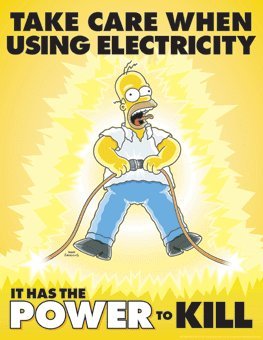Undertaking A DIY Electrical Project – Is It Worth It?


Over the last few years, the demand for electrical outlets and circuits in the home has increased dramatically with the introduction of new variations on entertainment, home computing, low voltage lighting and kitchen equipment.
To limit the number of fires, deaths and serious injuries occurring as a result of faulty electrical installations, new regulations were introduced in the UK in 2005 to govern what the DIY enthusiast can and can’t do. If you are undecided between undertaking your own electrical installation or finding a pre-approved, qualified electrician in your area, then the points raised here may help you.

Electrical work, carried out in the home is now regulated as part of the Building Regulations under Part P. There are a few exceptions but in the main, it must either be undertaken by a certified professional accredited by an approved body, or in cases where the homeowner considers themselves experienced and competent to carry out the work, it must be notified to the Building Control Officer before starting. The Building Control Officer will then arrange inspection of the completed work.
Failure to comply with Part P of the Building Regulations is a criminal offence and could result in the local authority issuing an order to remove or put right a faulty installation and also levy a substantial fine. Non-certified electrical installations could also make it difficult to sell your house in the future.
Electrical installations fall into 2 categories and may depend on where the work is to be situated. For example kitchens and bathrooms have more limitations than areas of the house where there is no running water. Make sure you have made comprehensive enquiries with your local authority before starting out. This is by no means a definitive list
The work you do not have to notify:
Work that must be either notified to Building Control or installed and certified by an electrician belonging to an accredited body
Whilst you may feel that you have the skills and experience to undertake notifiable installations yourself, there is a lot of potential expense that you will need to take into consideration. In addition to the normal administrative charges, in most cases the Buildings Control Officer will not be qualified to inspect your installation and will employ a specialist to do it. The cost of this will be charged to you and may be considerable.
A suitably accredited electrician on the other hand, will file the details of the installation with the accredited body he is affiliated with, and certification will be issued within a month. This is a much quicker, simpler and less expensive certification process and doesn’t involve inspections by Building Control.
For anything other than simple work listed above it is likely that finding an approved electrician near to you to undertake the electrical work will turn out to be the quickest, easiest and in some cases, the least expensive option. Placing a free advert on a site like WhyNotCompare that already has approved and accredited electricians listed and ready to take on work, can prove a very convenient way of finding the right person.
